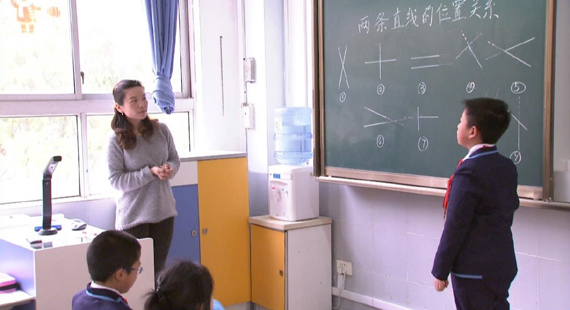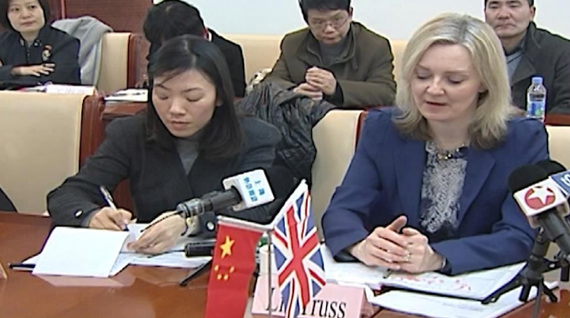
A math class in China. (Photo/CGTN)
Chinese teaching practices and discipline have been in the spotlight recently, with the UK's plans to adapt and translate a Chinese, or more precisely, a Shanghai math textbook into English for its primary schools, especially the public ones.
As a traditional power in modern education, the UK has slipped in the rankings table in recent years, especially when it comes to math. That explains why it is looking for overseas inspiration to improve its primary education. But what's so special about Chinese math teaching?
Shanghai students ranked first in math, reading and science in the PISA (Program of International Students Assessment) tests in 2009 and 2012, respectively, with an outstanding average math score of 613, compared to the 496 obtained by students in the UK.
The outstanding performances of Shanghai's pupils have as much to do with the city's unique teaching practices as well as their textbooks.
Shanghai mathematics education takes on a mastery approach, and follows the premise that all pupils can succeed as math learners. The concept of "whole class interactive teaching" aims to develop conceptual understanding and procedural fluency, achieved through lessons designed to be accessible to all through teacher questioning and incremental progression.
To ensure pupils step forward together, tasks are designed to allow for extension by deepening understanding and, in primary schools, daily intervention is used to support those in need of extra tuition.

A student explains math concepts to his class. (Photo/CGTN)
Another common feature is faculty group discussion. Teachers spend hours brainstorming how to get along better with pupils in their daily lives and more thought-provoking, with focus on how to connect each knowledge point in the textbook, and how to plan the curriculum in one month, one semester, or even through all six grades.
The faculty discussion mechanism ensures all teachers to keep at the same pace together, and that their pupils' learning processes are smoother.
Since 2014, about 70 primary school teachers and officials from the UK have come to China, working with their counterparts so as to learn more about the country's teaching methods and system.
In this way, all teachers can share their best teaching experiences and then all students, no matter in the West or East, can benefit from the most efficient and engaging learning methods.

Liz Truss, then UK Minister for School Affairs, visits Shanghai for an educational cooperation project. (Photo//CGTN)


















































